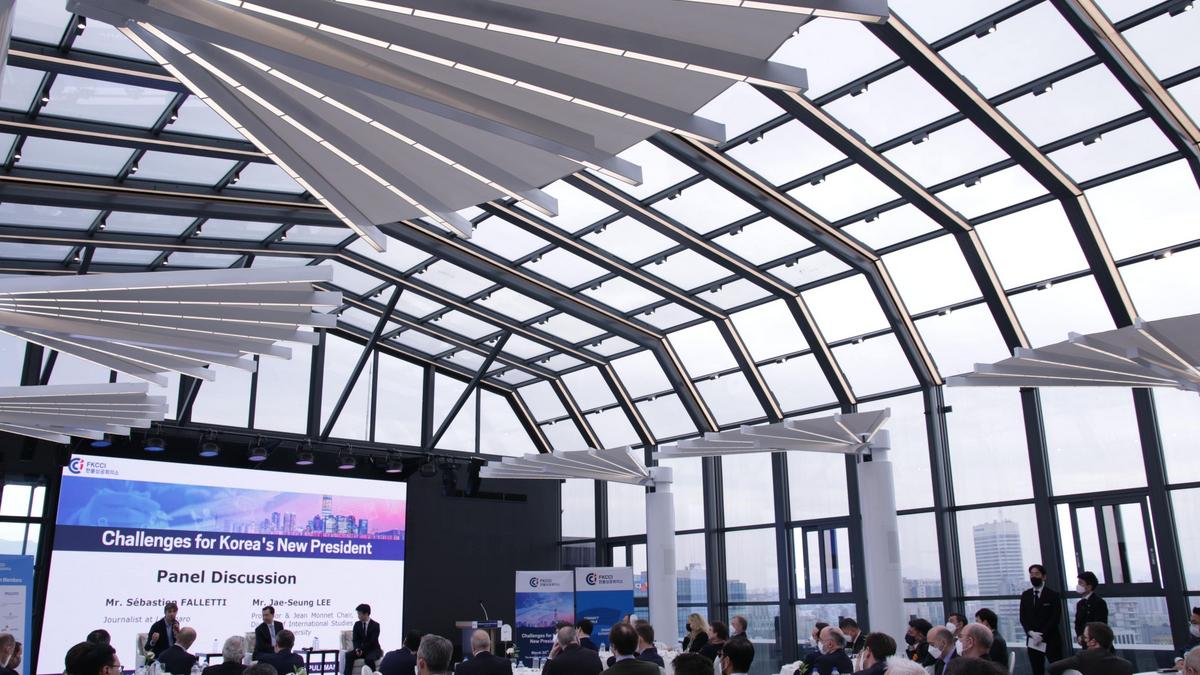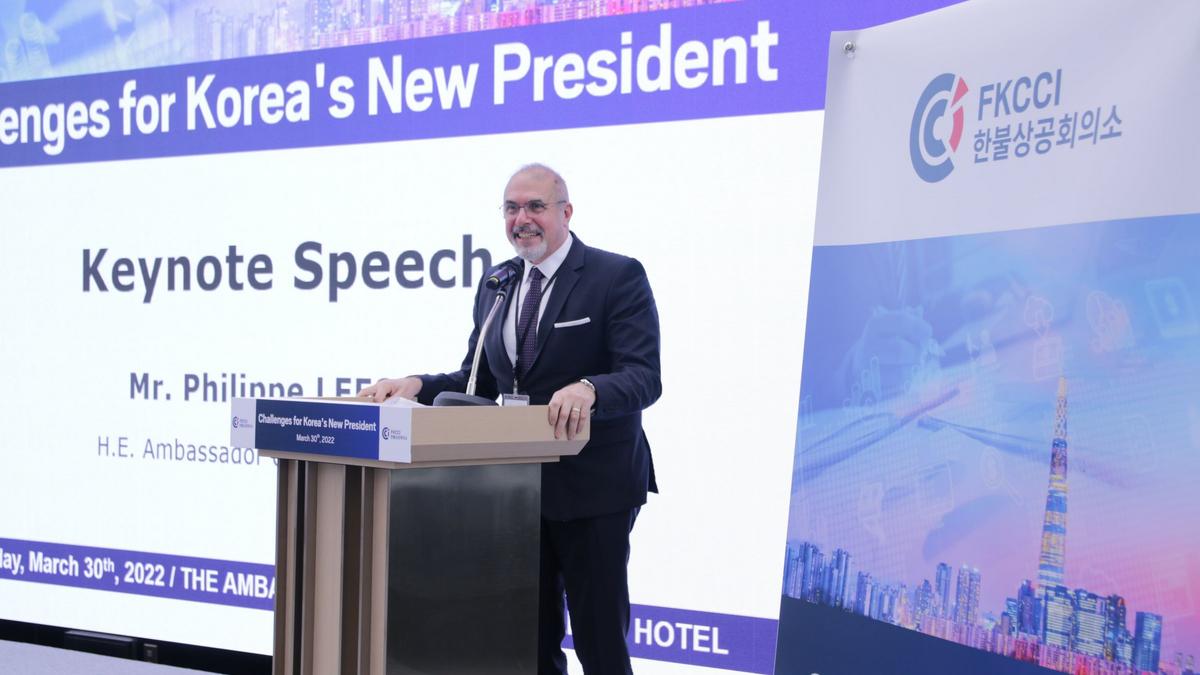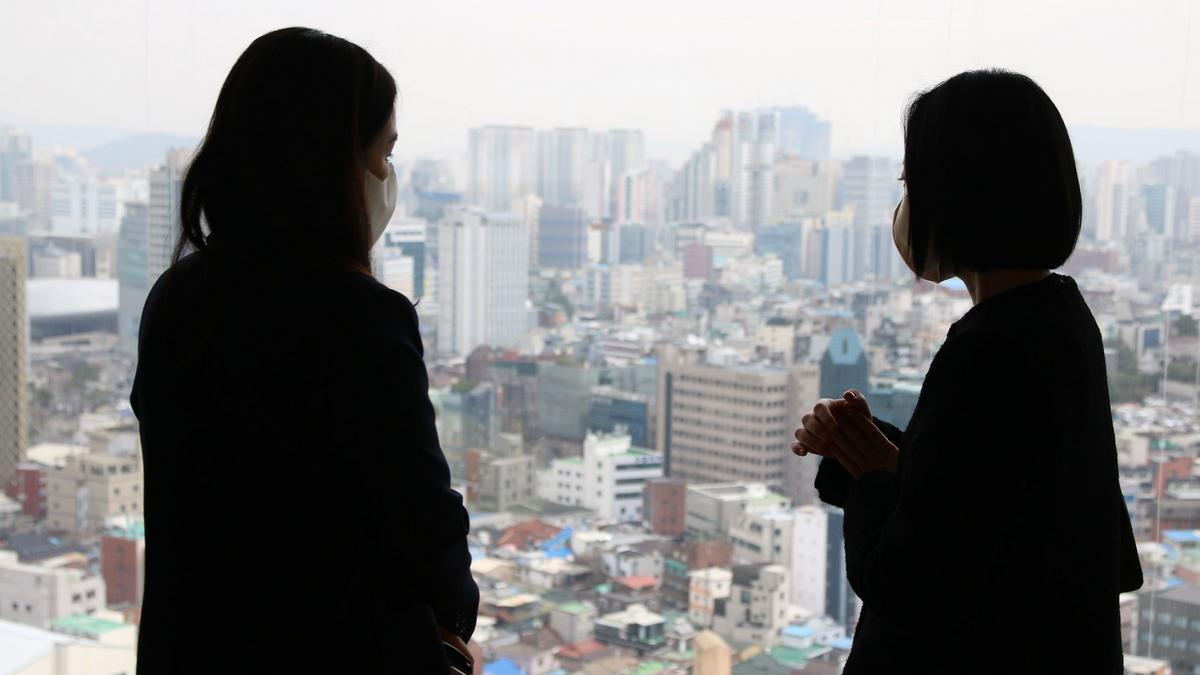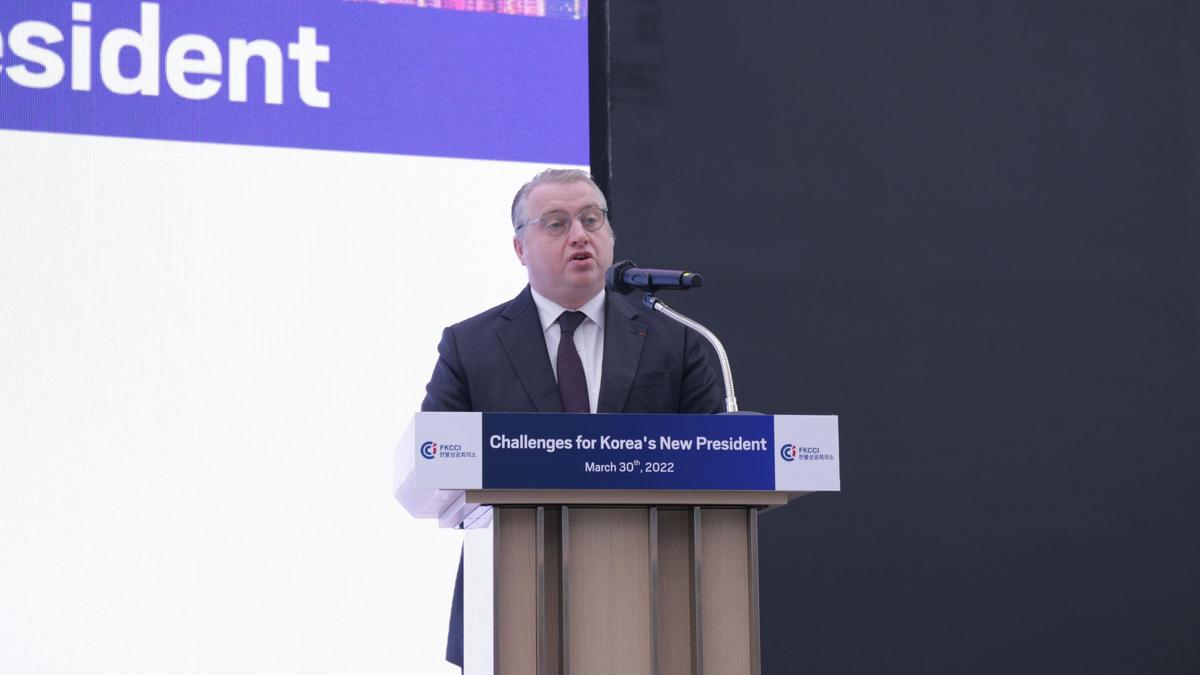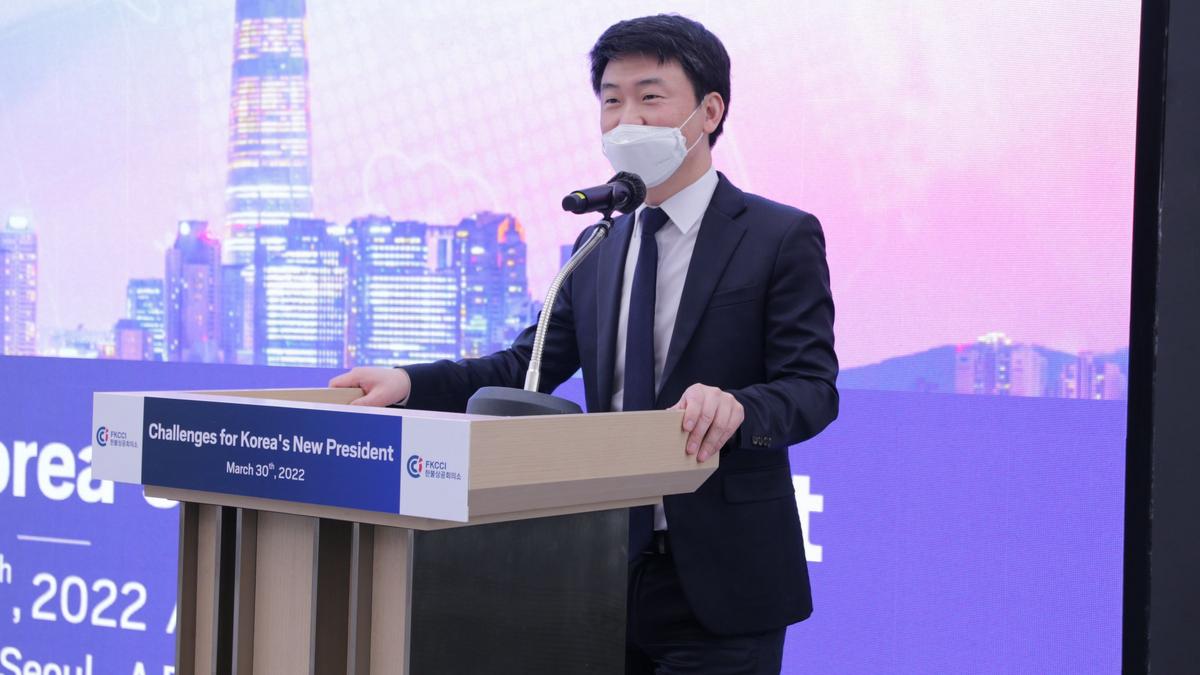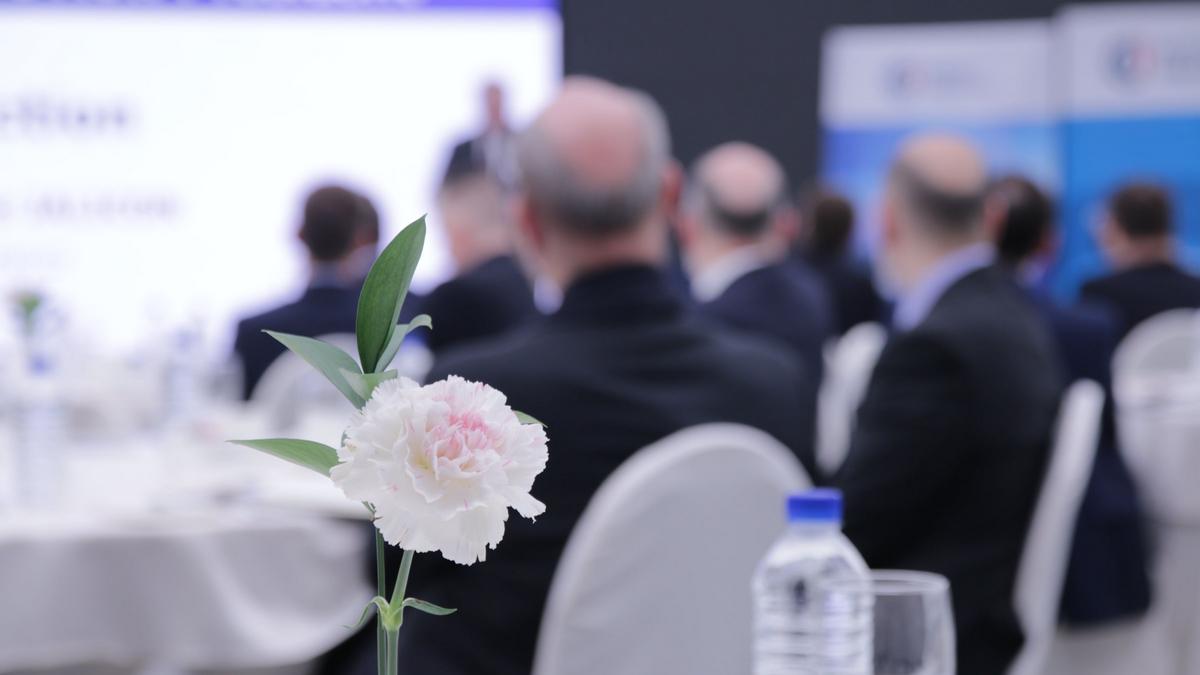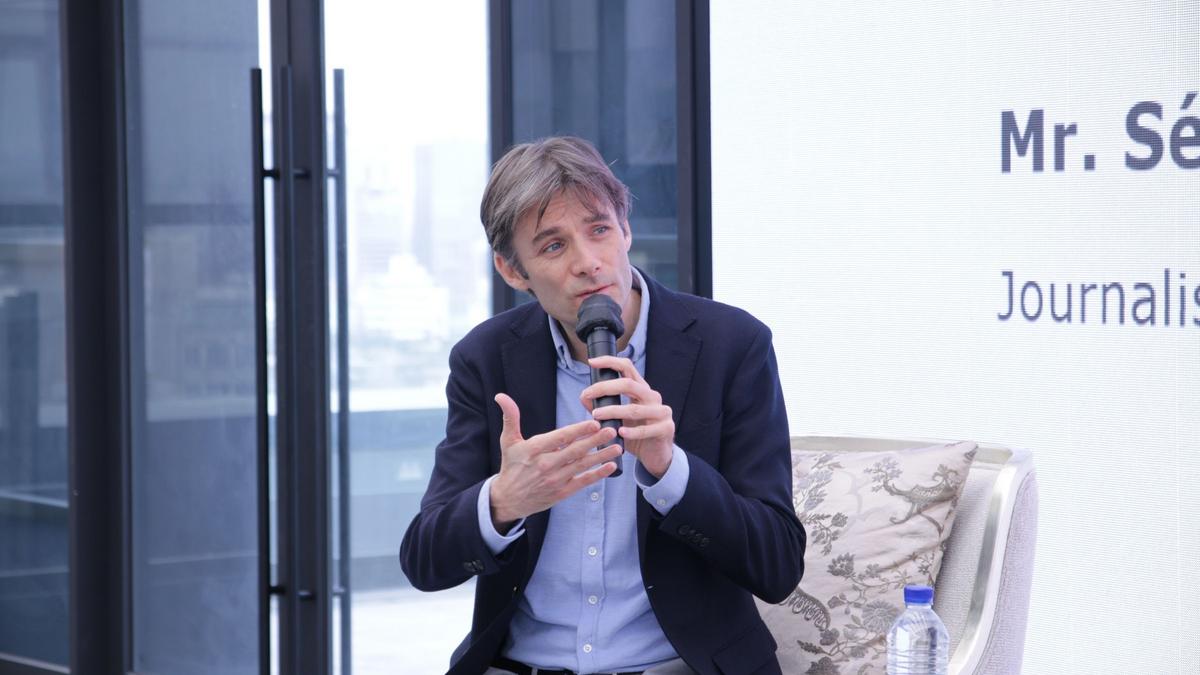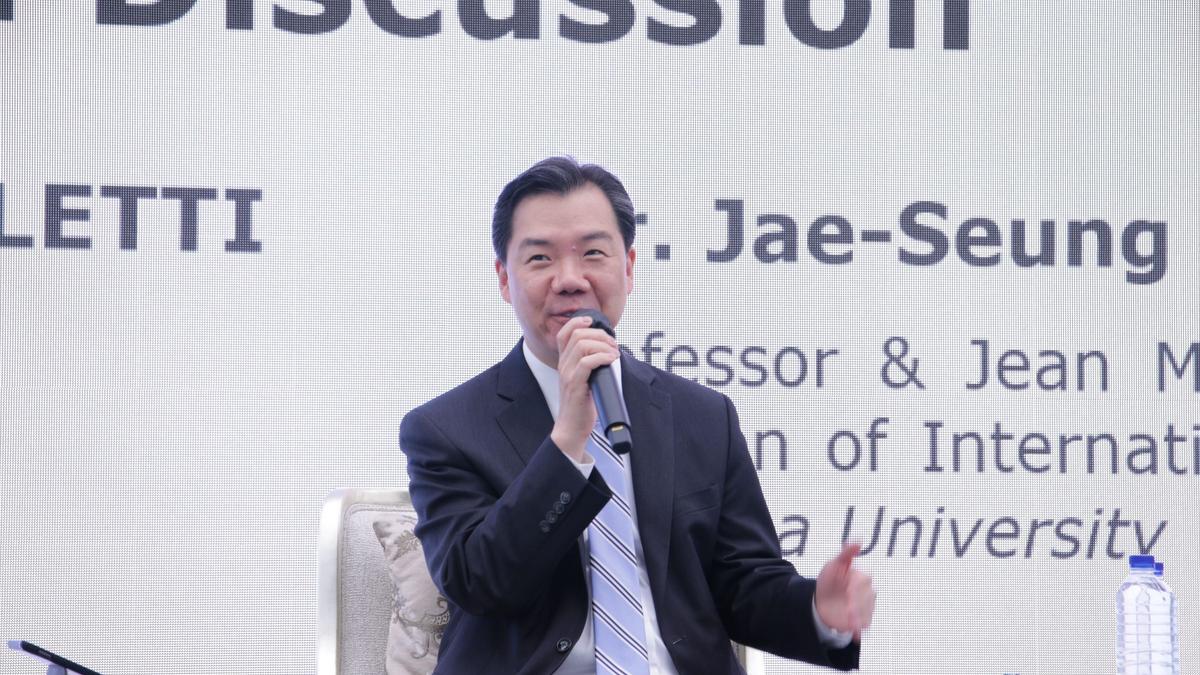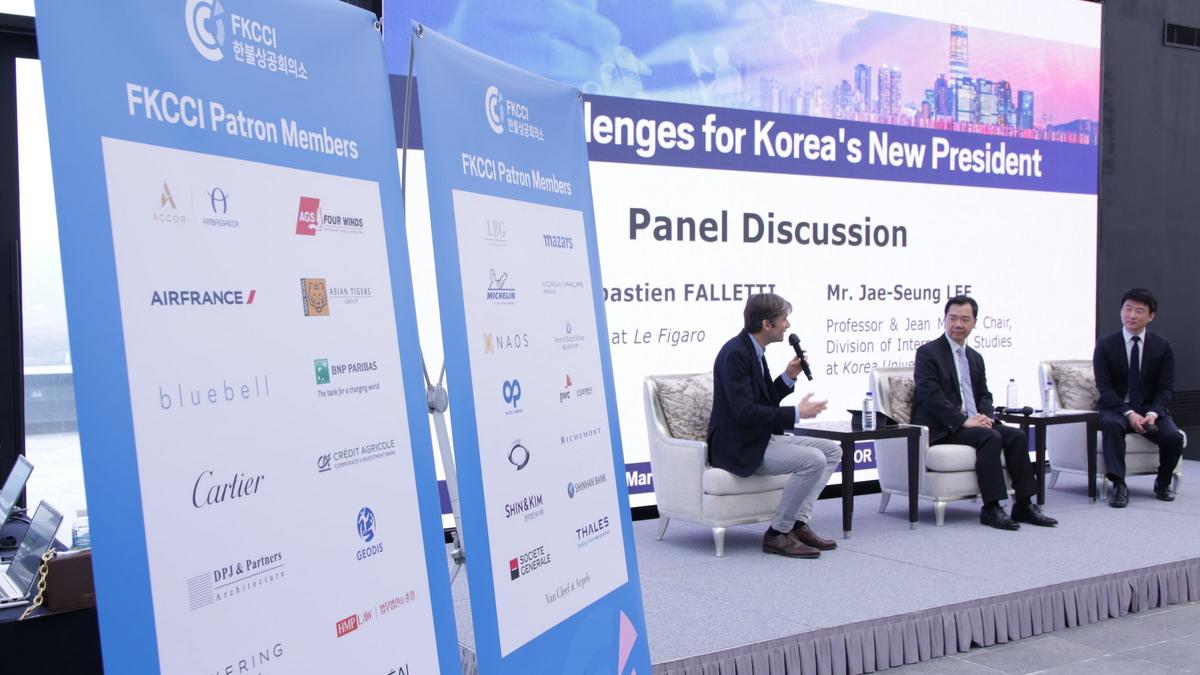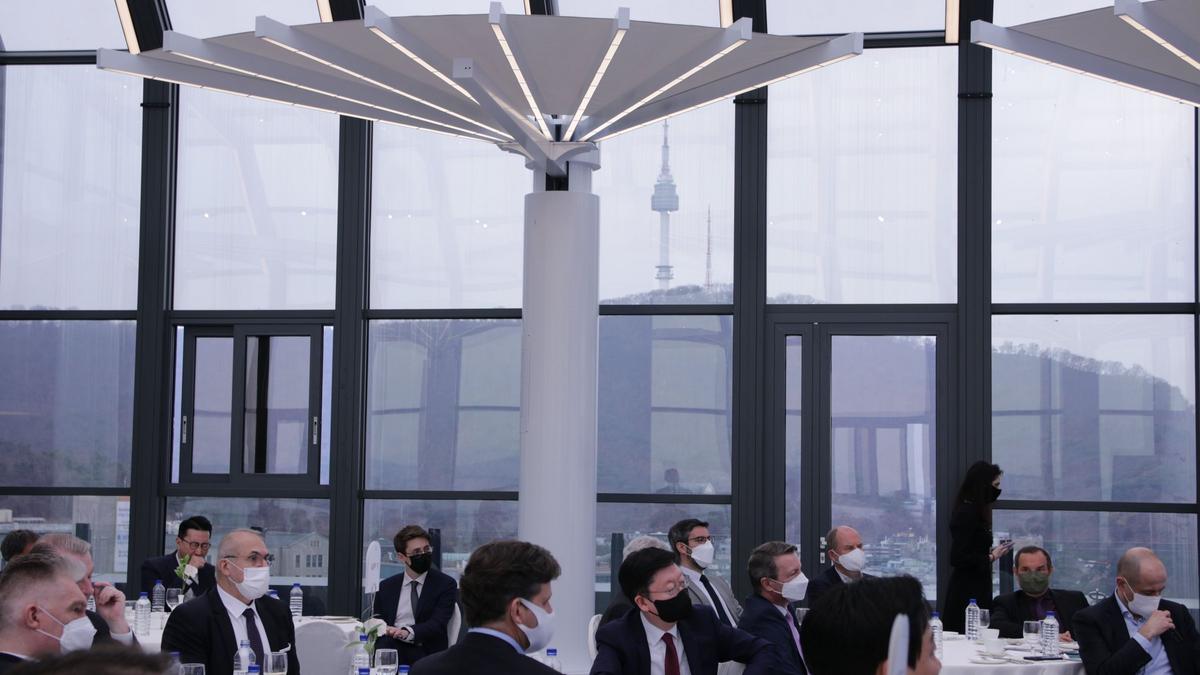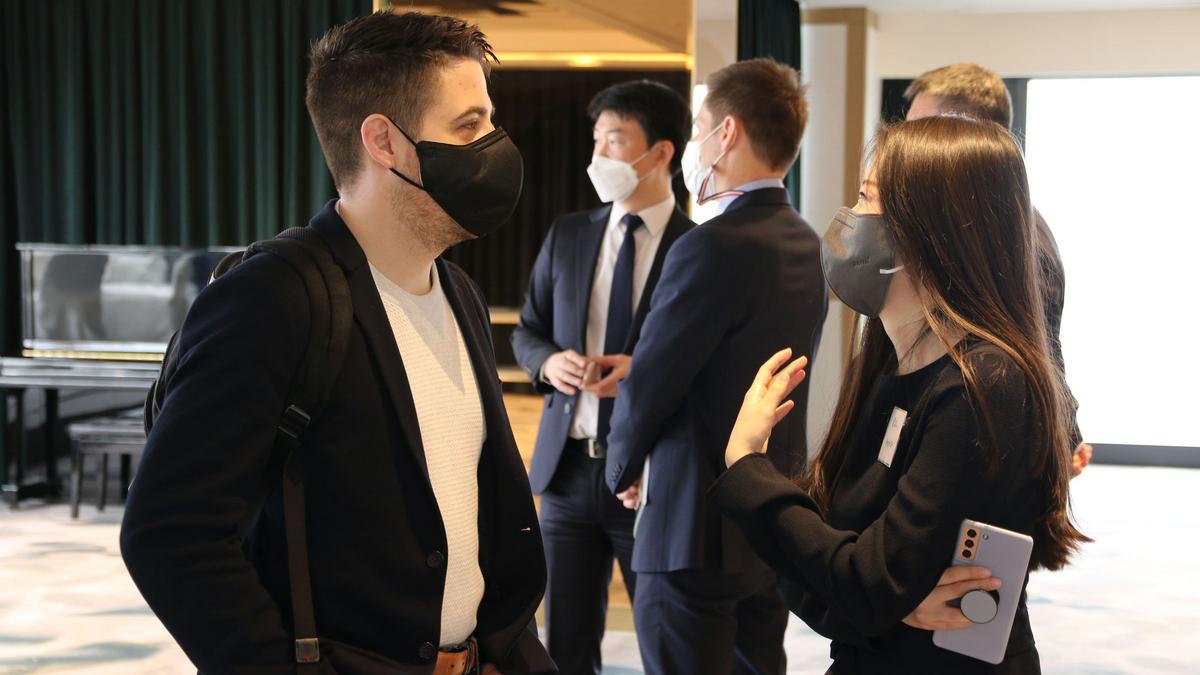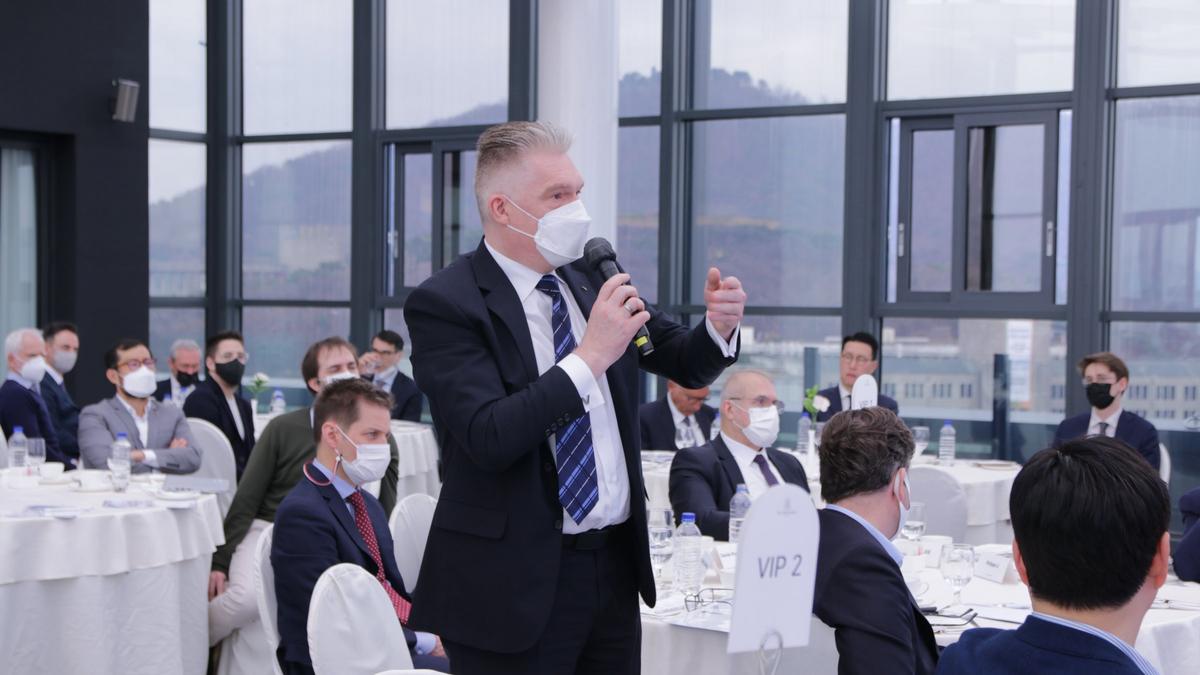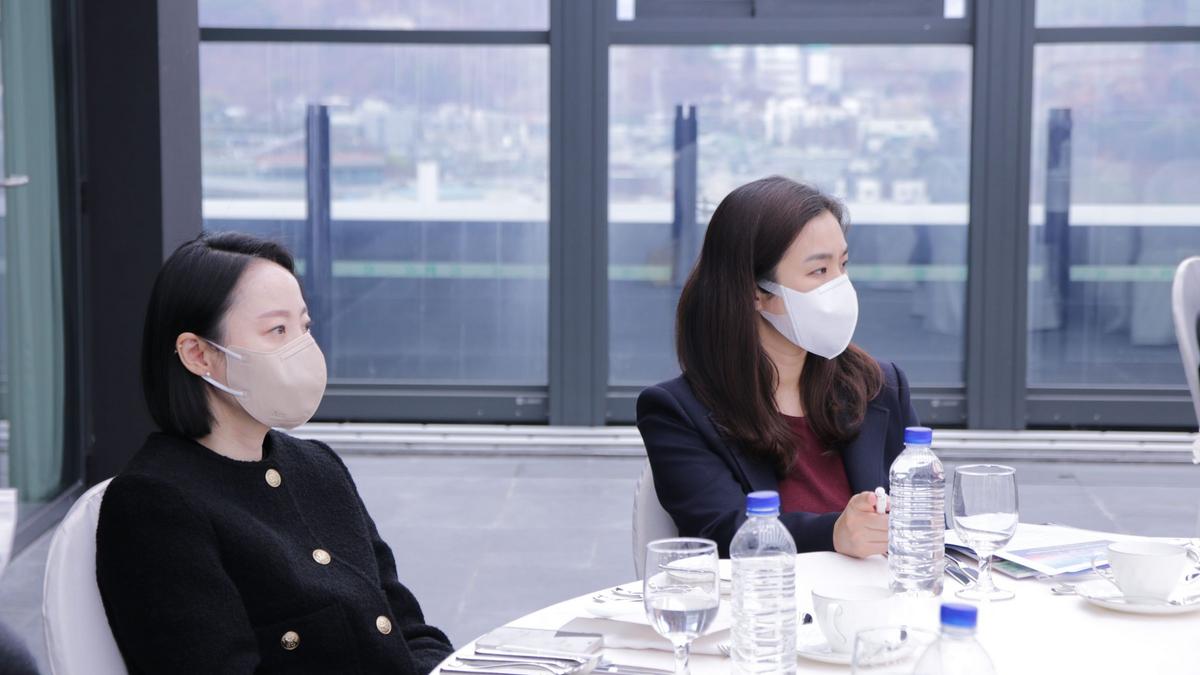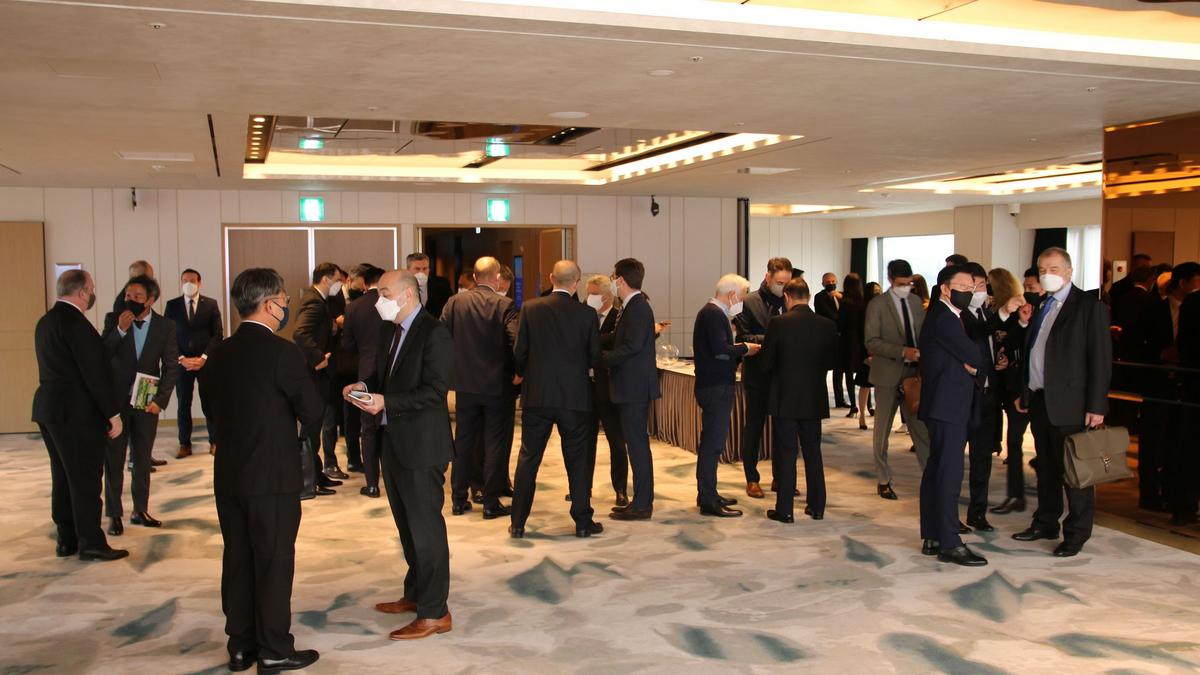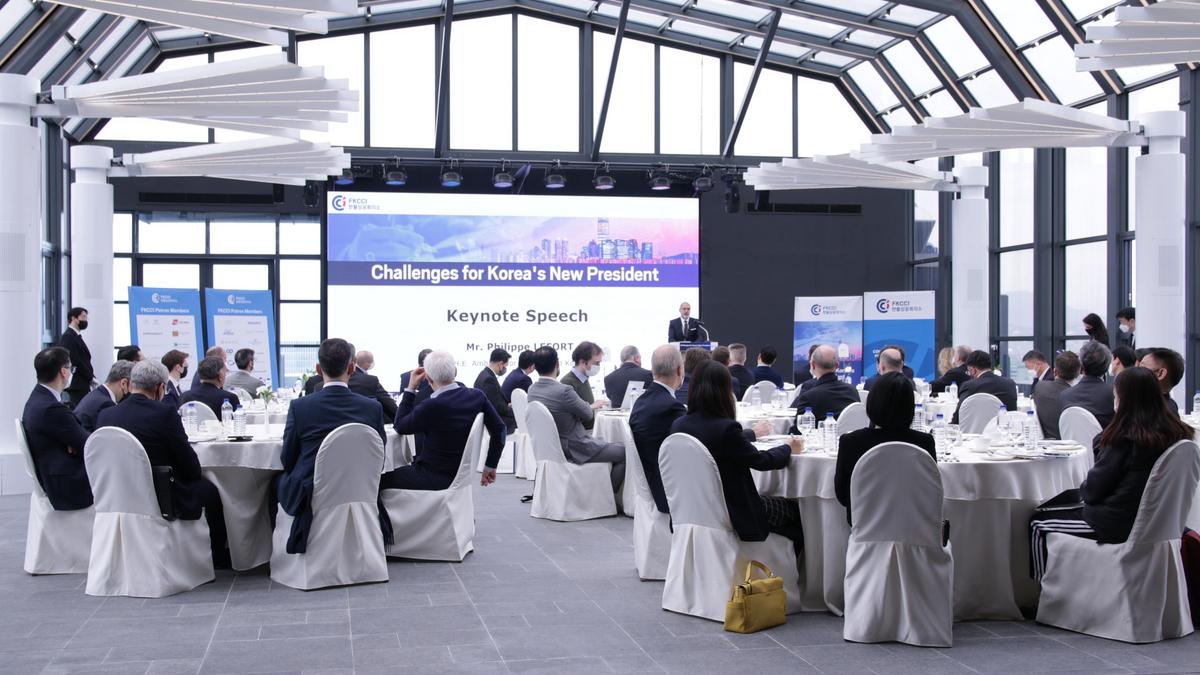Bilans d’évènement
What to expect from the new Korean administration?
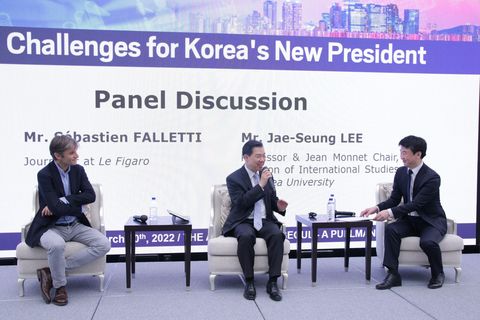
In the aftermath of one of the closest presidential races in Korean history with less than 1% of margin in election ties, Mr. Yoon Suk-yeol, the 20th President of the Republic of Korea will assume office on May 10th, 2022. On this occasion, on March 30th at the Ambassador Seoul – A Pullman Hotel, FKCCI brought together experts to discuss the challenges faced by the new government and expected effects on Korean new policies in economic, social, and geopolitical fields, considering the Peninsula’s position in a world shaken by crisis.
More than 60 participants including members of FKCCI participated in the luncheon at the rooftop of the hotel featuring an exceptional 360° view on Seoul. After keynote speeches of David-Pierre Jalicon, Chairman of FKCCI, and H.E. Philippe Lefort, Ambassador of France to Korea, Cédric Legrand, CEO of FKCCI, shared outlooks on main new policies announced by the Korean president-elect, and animated a panel session with Sébastien Falletti, Journalist for Le Figaro, and Jae-Seung Lee, Professor & Jean Monnet Chair, Division of International Studies at Korea University.
DOWNLOAD THE PRESENTATION HERE
As a conservative newcomer into politics (previously serving as Prosecutor), Yoon was elected partially through promises to be closer to the People, according to the analysts. He notably announced a new balance of powers for institutions by scaling down the President’s office by 30%, extending responsibility of Prime Minister and Ministers, and relocating the office of the President, Cheongwadae. The race was nevertheless close due to general cleavage in the nation, as pointed out by Mr. Falletti pointed out clear discrepancies in results of election between age and gender. Mr. Lee added that when it comes especially to the younger generation, the future of this country, it’ll be Yoon’s challenge to cope with this division in the Peninsula.
Regarding the economy, to support small merchants and self-employed people hit by COVID-19, the new government promised to secure an extra budget of more than 50 trillion won to provide a fair and complete compensation for losses and establish a rent sharing system. The focus for SMEs would be on their growth, competitiveness, and digital transformation for them to become mid-sized or large companies. To revitalize the economy, the administration would extend R&D and tax support in new industries, support innovative startups to create unicorns, and secure the global supply chain for core raw materials in a context of global shortages and price hikes (semiconductors, energy,…).
To strengthen industries, the new government would strongly focus on the 4th Industrial Revolution by becoming a leader in Metaverse, building a world-class AI industry and strengthening digital trade strategies. Korea’s leadership in sectors including digital finance ecosystem, semiconductor, shipbuilding, cultural content, health, and space industry would be consolidated as well.
Regarding energy, they promised to ensure a stable supply of clean energy by lowering the share of fossil fuels in energy production to 40%, strengthening nuclear energy to 30% and renewable sources to 20%. Nuclear power industry will be especially revitalized, with an ambition to become a top exporter of nuclear equipment and technology: a U-turn from the previous administration as highlighted by Jae-Seung Lee. The environmental policy direction is marked by “realism” as per the president-elect's words, with an unclear redefinition of Korea's Nationally Determined Contributions (NDCs) for 2030 but should focus as well on improving the air quality by reducing fine dust by more than 30%.
For the pressing social issues, the government would plan an extension of social benefits. In the housing market, 2.5 million additional housing units should be built in 5 years and measures should be taken to moderate the soaring prices by easing taxes. Regarding employment, job creation would rely on the private sector rather than government projects and be more specialized. Furthermore, working hours flexibility would be reinforced, wage system would be improved by focusing on job performance rather than seniority, and social dialogue would be improved to prevent labor conflicts.
Finally on international relations, Yoon is expected to take a stronger stance on North Korea by working on a complete denuclearization, reinforce its comprehensive strategic alliance with the US, and resume with a stronger relationship with China and Japan: a significant strategic change for Mr. Faletti that could fuel escalating tensions on the Peninsula. In this framework, European countries should still be seen as a valuable diplomatic partnership by reinforcing cooperation in new industries and climate change response.
